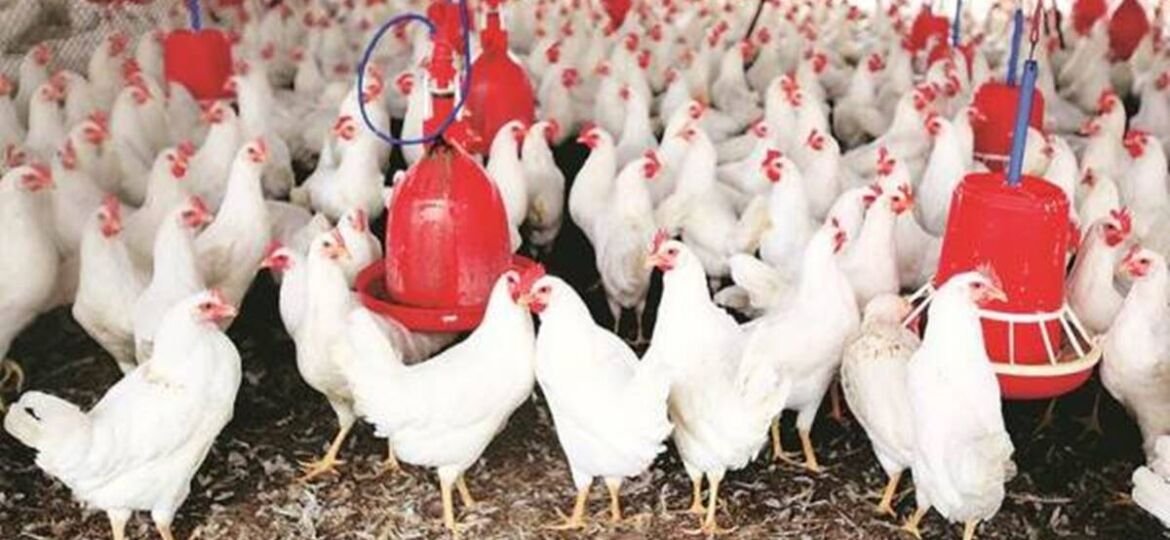


For the first time, India might have to import genetically modified (GM) deoiled soyabean oil cake (DOC) due to the historically high price of soyabean, which threatens to put Indian poultry farmers out of business. With the new crop months away, the feed industry is strongly lobbying for imports.
Since the start of the 2020-21 oil year (October- September), soyabean has been trading well above its government-declared Minimum Support Price (MSP) of Rs 3,880 per quintal. A global shortage due to crop failure in the main producing nations of Brazil and Argentina has propelled an increased demand for the oilseed, which has resulted in the price run.
Indian farmers had harvested 112.71 lakh tonne of the oilseed in the current year of which 97.71 lakh tonne was available for crushing.
Poultry and other animal feed formulators mix 30 per cent of DOC, the protein rich solid mass left over when oil is expelled from the seed, with 60-65 per cent maize (carbohydrate or energy component) and five per cent minerals/vitamins to form animal feed. For bigger animals like livestock, other deoiled cake like cotton or groundnut can be substituted for soyabean. But for poultry feed, soyabean is the preferred protein source as birds are able to digest it easier. Besides the domestic feed industry, Indian DOC is a premier export commodity given its non-GM nature. On an average, India exports 12-15 lakh tonne DOC, mainly to Europe and USA.
But continuous rise in soyabean prices has led to a rise in DOC prices also. In the international market, soyameal prices had touched a record high of $810 per tonne in the second week of July. Indian meal prices, which were at Rs 43,100 per tonne in November 2020, have almost doubled to Rs 76,000 per tonne in July.
According to a press statement issued by the Solvent and Extractors Association (SEA), the apex body of edible oil industry, this high price of the meal has not only hit exporters but also the domestic poultry industry. “…Many small poultry farmers are finding it very difficult to survive in this difficult time. High input cost of eggs and chicken has also escalated the chicken prices, which is affecting consumers,” the release stated.
According to a press statement issued by the Solvent and Extractors Association (SEA), the apex body of edible oil industry, this high price of the meal has not only hit exporters but also the domestic poultry industry. “…Many small poultry farmers are finding it very difficult to survive in this difficult time. High input cost of eggs and chicken has also escalated the chicken prices, which is affecting consumers,” the release stated.
At present, retail chicken and egg prices in most cities are around Rs 220 per bird and Rs 5.15 per egg. Cost of production for farmers has increased from Rs 75 to Rs 90 per kg. Ex-farm gate, the price at which farmers sell their market-ready birds weighing 2-2.5 kg each, is around Rs 123-125 per kg in most markets
But the higher costs have led to 30-35 per cent farmers exiting the business With DOC prices eating into their profits, the poultry industry has reiterated its earlier claim for allowing duty free import of 20 lakh tonne of the meal.
B Soundarajan, chairman of poultry giant Suguna Foods, said imports was the only way to ease the pain. “Substitution of other protein source increases mortality in birds,” he said. Barring India, non-GM DOC is available in Ukraine but in negligible quantity. “The only solution is to allow import of GM DOC either from USA or Brazil,” he said.
The landed cost of the meal will be Rs 40,000-45,000 per tonne and will take 45-60 days to arrive in large vessels.
The only GM crop which is allowed for cultivation in India is cotton. Soundarajan said that the cotton seed cake is used as protein component for animal feed in the livestock industry. Asked about regulatory concerns, he said that across the world, 90 per cent of poultry is reared on GM soyabean cake. “In case of livestock, cotton seed cake is used in formulation of feed milk…So, we do not have any concerns about importing GM oilseed cake for a short time for the poultry industry,” he added.
Source: THE INDIAN EXPRESS

